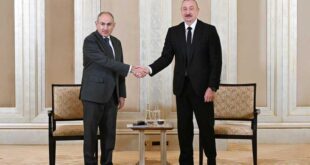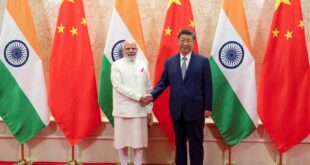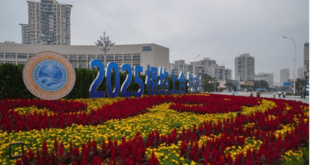Pham Quang
In the international relations structures in Southeast Asia, “strategic trust” acts as a glue between countries that are diverse in terms of institutions, histories, and national interests. Strategic trust can be understood as the extent to which one country believes that another country will not harm its core interests, even in the absence of strong enforcement mechanisms. This is not blind trust but calculated trust, based on consistent behavior, policy transparency, and commitment to complying with common rules of the game. In Southeast Asia, strategic trust is not only the foundation for bilateral cooperation but also a prerequisite for building the ASEAN Political-Security Community (APSC) according to the roadmap by 2025.
The relationship between Thailand and Cambodia is a case in point, reflecting the complex and fragile nature of strategic trust in the region. There have been periods of serious border conflicts, such as the dispute over the Preah Vihear temple area in 2008–2011, and the two countries have repeatedly been embroiled in military tensions. Although bilateral relations have stabilized under Hun Sen and subsequent civilian governments in Bangkok, underlying factors such as anti-Cambodian sentiment in the Thai military and a lack of transparency in the handling of migrant workers and border issues persist. In this context, the ASEAN institution, with its principles of non-interference and consensus, has shown its limits even more clearly. When tensions flare up, ASEAN often lacks effective tools for coordination and mediation, leading to a situation of “every man for himself” and dependence on personal relationships between leaders.
The leak of an audio recording between Thai Prime Minister Paetongtarn Shinawatra and Cambodian Senate President Hun Sen in June 2025 is a typical example of the failure of strategic trust in a loose institutional framework like ASEAN.
What is remarkable about the incident is not only the content of the call but also the nature of the diplomatic form used. The 17-minute exchange was conducted outside official channels and was marked by an excessively intimate tone: Ms. Paetongtarn called Mr. Hun Sen “uncle” and agreed with him to ignore criticism from a Thai military general. This reflects the deeply personal political model in both countries. In Thailand, “Thaksinism” is not just a political phenomenon but also a family-based power structure, where the Shinawatra clan still holds great influence in politics, despite opposition from the military and royalists. In Cambodia, “Hun Senism” is a symbol of decades of personal rule, where Mr. Hun Sen and his family control almost all state power, passing the throne to his son without any real democratic competition.
The leaked audio recordings reveal a number of statements that have crossed the line on the military and security. Notably, the Thai military’s disdain for Ms. Paetongtarn’s response to her claim that the generals were just “showing off” is a provocative and insulting statement to the military, which has staged coups to overthrow governments led by her family. In addition, the fact that the prime minister of one country made such a clear statement in favor of another country’s leader on a potentially disputed border issue has touched the limits of domestic and international strategic trust. Not surprisingly, shortly afterwards, the Bhumjaithai Party—the second largest partner in the ruling coalition—announced its withdrawal from the government, citing the serious damage to the honor of the nation and the military.
Hun Sen’s role in releasing the recording has further complicated the situation. While Cambodia has said that Hun Sen simply wanted to “clarify the truth” after the first nine minutes of the recording were leaked earlier, observers have said that the release of the entire transcript was politically calculated. On the one hand, it helped Hun Sen demonstrate his status as a “great friend” of Thailand while sending a message to the Thai military that they should not underestimate his influence. On the other hand, he also unintentionally—or intentionally—put the Thai Prime Minister in a difficult position when Ms. Paetongtarn was forced to apologize publicly, undermining her reputation and legitimacy at home.
The impact of the leaked audio recording between Thai Prime Minister Paetongtarn Shinawatra and Cambodian Senate President Hun Sen goes beyond the bilateral level, spreading like a domino effect to many levels of national political structures, international relations, and institutional functioning of ASEAN. At each level, this incident highlights the fragility of strategic trust while exposing the gaps in the ability to control and institutionalize individual power in Southeast Asia.
For Thailand, the political consequences are profound and potentially long-lasting. Internally, Paetongtarn’s government—newly formed with the support of the Shinawatra family—is on the brink of collapse after the Bhumjaithai Party, the second-largest partner in the ruling coalition, announced its withdrawal. This move not only created a parliamentary majority crisis but also cost Paetongtarn her already fragile political legitimacy and credibility as the “political heir” to her father, Thaksin Shinawatra. Polls after the event showed that the government’s approval rating plummeted, while support for the military’s role as a guarantor of national stability increased significantly.
The Thai military—which has traditionally been deeply involved in politics—now has a new justification for acting in the name of “protecting national honor and the face of the military.” The coups of 2006 and 2014 were both carried out in the name of maintaining stability and countering the influence of the Shinawatra family. This time, a civilian leader directly insulting the generals and showing subservience to foreign leaders could be interpreted as a threat to national security. In this context, the possibility of the military intervening, directly or indirectly, is a very real risk. This raises questions about the future of Thailand’s young democratic system, which has been repeatedly disrupted by military coups.
For Cambodia, this event can be seen by Hun Sen as a tactical victory in domestic affairs. The release of the entire recording demonstrates his proactive control of information and public opinion and helps him affirm his role as a powerful regional figure, despite having stepped down from the position of prime minister. In the eyes of the Cambodian public, Hun Sen is praised as someone who maintains his influence in foreign affairs and takes the initiative against a larger country like Thailand. However, on the international level, the release of a private recording between two heads of state may raise doubts about Phnom Penh’s diplomatic credibility. The deliberate release of confidential information will make other partners—both within and outside ASEAN—more cautious in all forms of high-level contact with Cambodian leaders. This, in the long term, may cause Cambodia to be partially isolated in strategic diplomatic channels or at least lose its image as a responsible partner in the region.
In terms of bilateral relations, Hun Sen’s release of the full transcript of the call also puts Thailand in a vulnerable position, forcing the Paetongtarn government to publicly apologize. This is an extremely dangerous diplomatic precedent, especially in the context of the two countries still having unresolved historical disputes. Without a clear and in-depth trust-building strategy from both sides, Thai-Cambodian relations risk taking a major step backward. Any efforts to build trust through defense, border security, and labor cooperation channels could be frozen or shifted to a state of precaution.
Regionally, the impact of this event is systemic for ASEAN. First of all, the incident has seriously undermined strategic trust within the bloc. ASEAN countries, which are already very cautious about sharing information and coordinating security, will now be even more cautious in high-level communications if they are concerned that the content may be leaked or exploited for internal political purposes. The fact that a high-level leader was recorded and then released in full without any official response from ASEAN shows the inability of this organization to handle internal crises. ASEAN does not have any mechanism to investigate, intervene, or mediate in bilateral diplomatic crises, especially when they do not take the form of traditional armed conflicts.
In addition, this incident also sets a dangerous precedent for the entire regional diplomatic culture: when personal relationships can be recorded, edited, disseminated, and exploited for political purposes. This breaks the unwritten norms of ASEAN diplomacy, where friendliness and discretion are considered the foundation. If this trend continues, regional leaders will gradually lose trust in each other, and instead there will be a permanent state of hidden tension. More importantly, strategic rivals outside the region, such as China or the United States, can take advantage of these trust gaps to amplify internal ASEAN conflicts. If any member state feels threatened or betrayed, it can turn to external powers as a strategic counterweight, leading to polarization in regional foreign policy and seriously weakening ASEAN’s neutrality in the Asia-Pacific security architecture.
Recent developments are a wake-up call for Southeast Asia on the need to institutionalize and make transparent strategic diplomatic channels. First, countries need to establish clear standards for high-level contacts between leaders—including confidentiality, recording, and public statements. Calls or personal contacts between leaders should be coordinated by the Ministry of Foreign Affairs and controlled by an official system to ensure accountability and information security. Second, ASEAN countries need to strengthen the role of professional diplomacy, limiting the use of backroom channels or friendly relationships as tools to resolve crises. In a region where individual leaders can change quickly, betting on personal relationships is a risky strategy.
ASEAN also needs to rethink its operating model. It is necessary to establish an early warning mechanism for intra-bloc diplomatic crises, as well as a code of conduct for senior leaders in bilateral contacts. This is not to control or limit the freedom of leaders but to ensure that individual actions do not undermine the foundation of shared trust. In the long term, a strong ASEAN security community can only be built if member states agree to abandon the mindset of “personal politics” and replace it with institutionalized, accountable, and transparent diplomacy.
 Geostrategic Media Political Commentary, Analysis, Security, Defense
Geostrategic Media Political Commentary, Analysis, Security, Defense





